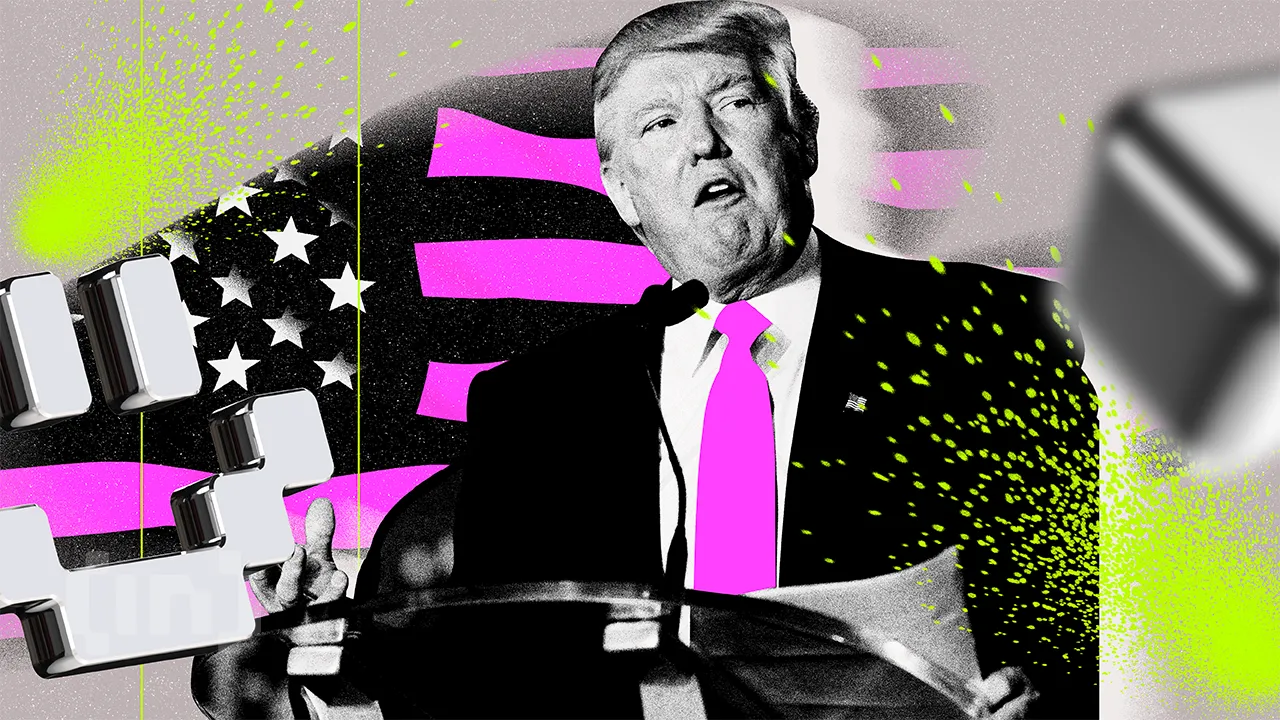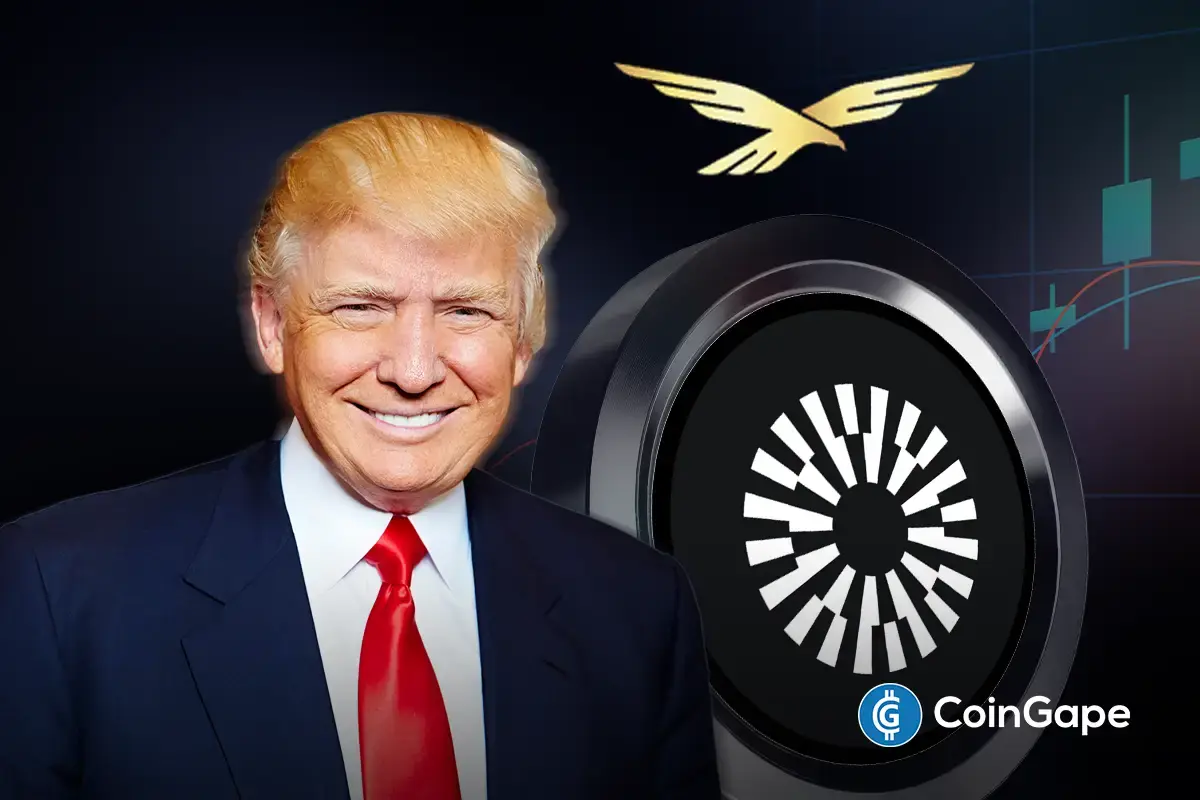Regulation
Argentina’s financial regulator introduces mandatory registration for all cryptocurrency service providers


Last month Argentina’s financial regulator, Comisión Nacional de Valores, introduced mandatory registration for all cryptocurrency exchanges and brokers operating in Argentina. As crypto service providers begin to get to grips with this new crypto registration rule, this article outlines the critical changes, compliance expectations, and long-term implications in a direct, fluff-free analysis.
Why is Argentina mandating crypto service provider registration, and how will this rule reshape the industry?
Cryptocurrency and the casino landscape in Argentina: An evolving intersection

In Argentina, the way cryptocurrencies and casinos work together is slowly changing. There aren’t any rules specifically about using cryptocurrency for gambling. However, more people are using digital money, and it’s becoming part of Argentina’s economy and society. This shows the country is accepting crypto.
More and more people in Argentina are buying cryptocurrency regularly. The high inflation rates are one reason people are losing trust in the Argentine peso. Cryptocurrency is seen as an investment and way to store the value that’s more stable.
Argentines want options that aren’t as affected by the country’s economic ups and downs or government controls. Significantly, Argentina ranks 13th globally for crypto adoption in 2022. Many use stablecoins like Tether and USDC, showing their desire for financial stability through crypto.
Even though cryptocurrency is widespread, the laws about using it for gambling and casinos aren’t clear yet. Argentina hasn’t published guidelines for casinos accepting cryptocurrencies like Bitcoin, Ethereum, or Litecoin, but if it does decide to clamp down then users could be forced to shun crypto casinos in favor of online casinos that offer real money deposits and withdrawals.
Argentina showed interest in blockchain and cryptocurrencies in the past. In 2020, the Central Bank worked with a Bitcoin company on a blockchain payment network. The country made rules for taxing cryptocurrencies. It also allowed public transport payments in Bitcoin since 2019. These steps show Argentina is cautiously adopting digital currencies into its economy.
As Argentina deals with economic issues and explores cryptocurrencies, using them in gambling has chances and unknowns. The changing situation suggests a careful but open view on using cryptocurrencies’ potential to improve and stabilize Argentina’s economic activities like casinos and online gambling.
Argentina’s new crypto registration rule
In the wake of burgeoning global interest in digital currency, Argentina has instituted a compulsory registry for cryptocurrency exchanges and other virtual asset service providers encompassing an array of crypto-related activities.
The new regulation applies to various operations, including purchasing, selling, borrowing, and trading crypto assets. It thus embraces every facet, from active platform trading to quiet movements of digital currency between wallets.
By aligning itself with recommendations from the Financial Action Task Force (FATF), Argentina signals a significant step forward in overseeing the crypto industry and shaping its integration within national financial practices.
With time pressing down on them, participants currently embedded within Argentina’s cryptocurrency sector face a 45-day countdown to conform their operations to this new decree—a race toward adherence that may well set the stage for how cryptocurrency functions are performed across Argentine soil in future times.
Objectives of the registry
The heart of this mandatory registry beats with a clear mission: to fortify the bulwarks against the specters of money laundering and financial terrorism that haunt the realm of crypto transactions.
By wielding blockchain intelligence tools, the registry aims to illuminate the shadows where high-risk or terrorist-associated digital wallet addresses might lurk. Beyond the shield of security lies the promise of increased transparency and consumer protection, a beacon of trust that could beckon wider adoption of cryptocurrencies.
The absence of specific statutory or regulatory regimes is not seen as an obstacle but rather as a clarion call for crypto businesses to erect sophisticated compliance protocols proactively.
These measures are designed to maintain and heighten customer trust in an industry often seen as the wild frontier of finance.
Implications for crypto trading services
Virtual asset service providers based locally or abroad are being drawn into Argentina’s regulatory sphere. These entities must adhere to the newly imposed mandatory Registry of Virtual Asset Service Providers to engage in the bustling Argentine market.
This directive requires compliance from all international firms offering cryptocurrency services in Argentina.
Crypto companies are actively seeking ways through this complex environment by:
- Employing internal and external audits as navigational tools
- Striving to identify any issues with compliance
- Ensuring their programs meet necessary standards
- Demonstrating to regulators that their handling of cryptocurrency transactions is lawful.
The crypto industry’s reaction

The promulgation of the VASP registry has sent ripples through the Argentine crypto community, echoing concerns that the measure may serve the state bureaucracy and compliance industries more than the cryptocurrency sector itself.
The air was thick with the scent of disappointment among Bitcoin enthusiasts who had anticipated a regulatory environment reminiscent of El Salvador’s Bitcoin embrace.
Implementing stringent VASP regulations under President Javier Milei’s watch has left these supporters grappling with a reality far removed from their libertarian dreams. The industry was taken aback by the government’s sudden strict regulatory approach, which clashed with the new leader’s libertarian stance, raising eyebrows and questions alike.
However, not all view the regulations through a lens of skepticism. Industry figures such as Manuel Ferrari and Nicolas Bourbon consider the new rules as steps towards satisfying international standards, albeit without an immediate impact on users.
Concerns over Bitcoin’s classification
In Argentina, the status of Bitcoin is mired in a web of contradiction and ambiguity, presenting a complex challenge that remains unresolved. The absence of a consistent framework for classification leads to ongoing uncertainty regarding the cryptocurrency’s legal position.
Contrastingly, El Salvador has embraced Bitcoin by conferring it with legal tender status. Argentina has decidedly resisted adopting crypto assets. This deviation from accepting Bitcoin and incorporating crypto-friendly measures into policy has dampened spirits among Argentine proponents of Bitcoin, who are now faced with reconciling this reality with their earlier hopes.
Criticisms from industry leaders
Industry experts have raised their objections, with individuals like Manuel Ferrari sharply criticizing the newly mandated registration policy for cryptocurrency exchange platforms like Bitcoin.
Describing it as a ‘terrible idea’, Ferrari argues that Bitcoin ought to be regarded as money rather than a security, emphasizing that imposing comparable regulatory demands on currency exchange houses is nonsensical and misguided. The predicament could have been avoided if these exchange entities were treated distinctively.
There’s a noticeable sense of frustration given Argentina’s hesitation to emulate El Salvador’s endorsement of Bitcoin, especially considering the increasing significance of cryptocurrency within the regional market.
Regulation
USDC Issuer Circle Set To File IPO In April, Here’s All

USDC issuer Circle is reportedly set to file its initial public offering (IPO) in April as part of the firm’s plans to finally go public. The stablecoin issuer is allegedly already working with top financial institutions to achieve this move.
Circle To File IPO In Late April
According to a Fortune report, Circle is looking to file its IPO in late April, although the listing period remains uncertain. The report noted that when a company files to go public, its shares usually begin trading four weeks later, indicating that the listing could occur in May. However, there is also a scenario where the IPO process could drag on for months.
The stablecoin issuer is reportedly working with investment banks JPMorgan Chase and Citi to achieve its long-anticipated IPO. The firm had previously tried to go public in 2021 under a SPAC arrangement with a shell company.
The US SEC failed to sign off on this arrangement back then, and the company eventually scrapped these IPO plans by the end of 2022 when the crypto exchange FTX collapsed and the broader crypto market experienced a downturn.
Revelation about Circle’s IPO plans comes just days after the stablecoin issuer partnered with NYSE’s parent company to explore USDC’s use in traditional finance (TradFi). Meanwhile, the USDC stablecoin recently launched in Japan following approval from the country’s regulator. Notably, USDC is the first and only global dollar stablecoin approved under Japan’s stablecoin framework.
An Easier Path Now For The Stablecoin Issuer
Circle will likely face less resistance for its IPO plans under the current SEC administration. Under acting Chair Mark Uyeda, the Commission has shown its willingness to work hand in hand with crypto firms, which was missing under Gary Gensler’s administration.
US SEC Chair nominee Paul Atkins has also shown his willingness to change the approach that Gensler’s administration adopted towards crypto firms. During his nomination hearing, the SEC Chair nominee promised to prioritize providing regulatory clarity for the industry.
Circle’s IPO listing would be the biggest since the top crypto exchange Coinbase went public in 2021. Interestingly, Coinbase owns an equity stake in the crypto firm.
The firm’s USDC is currently the second-largest stablecoin by market cap, only behind Tether’s USDT. The stablecoin industry is heating up as more financial institutions look to develop their own stablecoin.
Donald Trump’s World Liberty Financial recently revealed plans to launch its USD1 stablecoin, while asset manager Fidelity is also considering doing so.
Disclaimer: The presented content may include the personal opinion of the author and is subject to market condition. Do your market research before investing in cryptocurrencies. The author or the publication does not hold any responsibility for your personal financial loss.
Regulation
Japan Set To Classify Cryptocurrencies As Financial Products, Here’s All

Cryptocurrency investors in Japan are bracing for impact following a plan to reclassify digital assets as financial products. While the plan has elicited excitement from cryptocurrency enthusiasts in the Far East, the ambitious plan will have to scale several legislative hurdles.
Japan Targets Reclassification Of Cryptocurrencies As Financial Products
According to a report by Nikkei, Japan’s Financial Services Agency (FSA) is inching toward classifying cryptocurrencies as financial products. Per the report, the FSA intends to achieve the reclassification via an amendment to the Financial Instruments and Exchange Act.
Currently, digital assets in Japan are considered crypto assets conferred with property rights and seen as payment means. Under the FSA’s plans, cryptocurrencies in Japan will be treated as financial products in the same manner as traditional financial products.
The FSA says it will adopt a slow and steady approach toward the reclassification, carrying out “a private expert study group” to test the waters. If everything goes according to plan, the FSA will submit the amended bill to Parliament in early 2026.
The classification of cryptocurrencies as financial products will have far-reaching consequences for the local ecosystem. Experts say treating cryptocurrencies as financial products will bring Japan closer to a crypto ETF launch amid a changing regulatory landscape.
Furthermore, the move may lower current cryptocurrency taxation for local investors since existing capital market rules will apply to the asset class.
A Fresh Bill For Crypto Insider Trading Is Underway
Apart from the reclassification, the FSA disclosed plans for new legislation against insider trading. The move flows treating cryptocurrencies as financial products and will strengthen existing investor protection rules.
“It is a direction to establish a new insider trading regulation that prohibits trading based on unpublished internal information,” said the FSA. “We will develop laws to prevent unfair transactions.”
However, Japan’s cryptocurrency scene is heating up to a boil, driven by local and international players. Last week, stablecoin issuer Circle secured approval from the FSA for USDC with top exchanges set to list the stablecoin.
Japan’s Metaplanet has tapped Eric Trump to join its Strategic Board of Advisors as it continues to load up Bitcoin.
Disclaimer: The presented content may include the personal opinion of the author and is subject to market condition. Do your market research before investing in cryptocurrencies. The author or the publication does not hold any responsibility for your personal financial loss.
Regulation
Kentucky Governor Signs Off On ‘Bitcoin Rights’ Bill, Strengthening Crypto Protections


In what is being dubbed a major development in the crypto regulation space, the Governor of the US state of Kentucky, Andy Beshear, has signed the ‘Bitcoin Rights’ bill into law. The law promises to safeguard protections for Bitcoin (BTC) users.
Bitcoin Rights Bill Comes Into Effect
Crypto regulations continue to evolve under pro-crypto US President Donald Trump’s administration. In the latest development, Kentucky has become the newest state to enshrine protections for digital asset users.
In an X post published on March 24, crypto advocacy group Satoshi Action Fund announced that Governor Beshear had signed the much-anticipated Bitcoin Rights bill into law. The post stated:
The right to self-custody, run a node, and use of digital assets is now protected for millions of Americans without fear of discrimination.
The bill was first introduced to the Kentucky House by Rep. Adam Bowling on February 19. According to the bill’s description, it seeks to safeguard users’ rights to use digital assets and self-custody wallets. Additionally, it aims to prohibit local zoning changes that discriminate against crypto mining operations.
The legislation outlines guidelines for running a digital asset node and excludes digital asset mining from money transmitter license requirements. It also clarifies that crypto mining or staking is not considered an offer or sale of securities.
On February 28, the bill passed Kentucky’s House of Representatives with a unanimous vote of all 91 representatives in favor. It later passed the Kentucky Senate on March 13, receiving backing from all 37 senators.
Kentucky’s proactive stance toward cryptocurrencies isn’t new. Earlier this year, the state became the 16th US state to introduce legislation seeking to create a Bitcoin strategic reserve.
Meanwhile, neighboring state Arizona is also joining the crypto movement. A recent X post by Bitcoin Laws revealed that Arizona’s House Rules Committee has passed two Bitcoin reserve bills — SB1373 and SB1025. These bills will now head to a full floor vote.
Renewed Optimism Under Trump Administration
Following Trump’s victory in the November presidential election, cryptocurrency regulations in the US are evolving rapidly, with many states introducing legislation aimed at strengthening their digital asset ecosystems and attracting crypto businesses.
Positive changes in crypto regulations are encouraging industry businesses to expand. For instance, leading crypto trading platform Coinbase recently announced plans to hire 1,000 employees in the US.
The Trump administration has also witnessed several lawsuits being dropped against major crypto entities, including Kraken, Coinbase, Gemini, and others. At press time, Bitcoin trades at $87,399, down 0.2% in the past 24 hours.

Featured Image from Unsplash.com, chart from TradingView.com

Editorial Process for bitcoinist is centered on delivering thoroughly researched, accurate, and unbiased content. We uphold strict sourcing standards, and each page undergoes diligent review by our team of top technology experts and seasoned editors. This process ensures the integrity, relevance, and value of our content for our readers.
-

 Market21 hours ago
Market21 hours agoCoinbase Tries to Resume Lawsuit Against the FDIC
-

 Altcoin21 hours ago
Altcoin21 hours agoCharles Hoskinson Reveals How Cardano Will Boost Bitcoin’s Adoption
-

 Market20 hours ago
Market20 hours agoHedera (HBAR) Bears Dominate, HBAR Eyes Key $0.15 Level
-

 Altcoin24 hours ago
Altcoin24 hours agoElon Musk Rules Out The Use Of Dogecoin By The US Government
-

 Ethereum22 hours ago
Ethereum22 hours agoEthereum May Have To Undo This Death Cross For Bull’s Return
-

 Market22 hours ago
Market22 hours agoBlackRock’s Larry Fink Thinks Crypto Could Harm The Dollar
-

 Altcoin22 hours ago
Altcoin22 hours agoEthereum Bitcoin Ratio Drops to Record Low, What Next for ETH?
-

 Market19 hours ago
Market19 hours agoThis is Why PumpSwap Brings Pump.fun To the Next Level




















✓ Share: